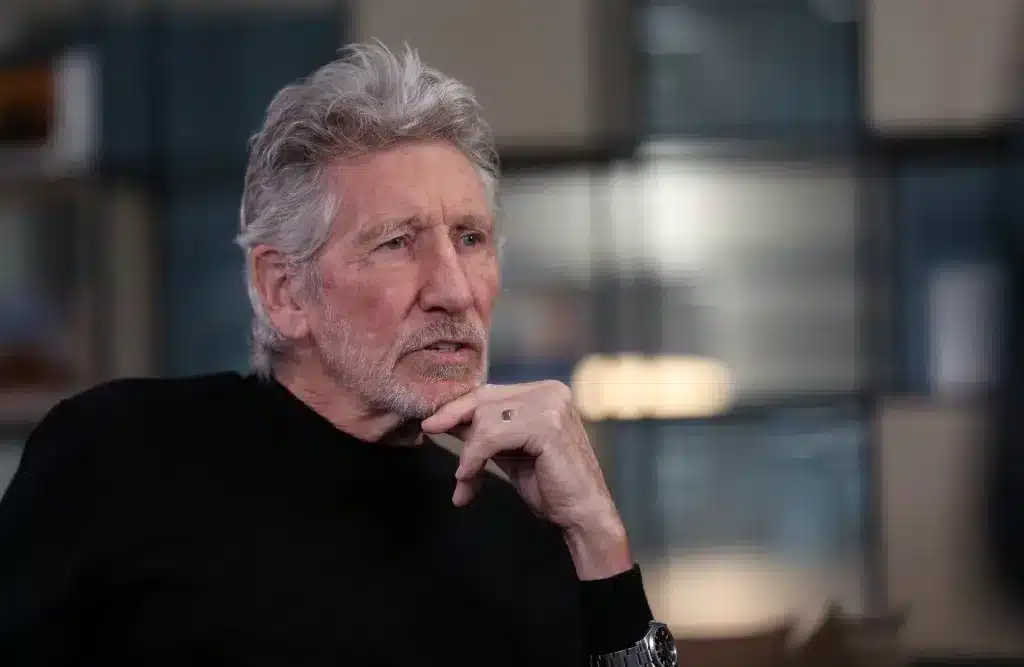
Pink Floyd’s Waters joins forces with Latin American leaders to contest US claims about Venezuela. Photo: teleSUR/file photo.

Orinoco Tribune – News and opinion pieces about Venezuela and beyond
From Venezuela and made by Venezuelan Chavistas

Pink Floyd’s Waters joins forces with Latin American leaders to contest US claims about Venezuela. Photo: teleSUR/file photo.
In a powerful statement that has reverberated through diplomatic circles, Roger Waters, the co-founder of the legendary rock band Pink Floyd, has publicly condemned what he describes as American military posturing near Venezuela.
This intervention comes at a time when tensions in the Southern Caribbean are escalating, with reports indicating that US naval vessels have been deployed in the region.
Waters’ passionate denunciation of these actions raises critical questions about international relations and the motivations behind such military displays.
Disputed Claims and International Tensions
In a compelling video message shared on social media, Waters systematically dismantled accusations levied by US Secretary of State Marco Rubio against Venezuelan President Nicolas Maduro.
Rubio’s claims about the so-called “Cartel of the Sons,” purportedly involved in drug trafficking, faced sharp criticism from Waters, who called them “laughable” and a transparent “ruse.”
@telesurenglish British musician Roger Waters dismantled accusations levied by US Secretary of State Marco Rubio against Venezuelan President Nicolas Maduro #RogerWaters #Venezuela #PinkFloyd
This bold challenge highlights the contentious atmosphere surrounding US-Venezuela relations.
Waters’ remarks resonate not only with his fans but also with political leaders in the region. His stance aligns with that of Colombian President Gustavo Petro, who publicly rejected the validity of the alleged cartel’s existence.
Both figures underscore a growing skepticism regarding the US government’s narrative about Venezuela.
Furthermore, Waters pointed out the lack of substantial evidence to support these claims; reports from both the United Nations and the Drug Enforcement Administration do not categorize Venezuela as a significant concern in South American drug trafficking.
Diplomatic Support and Evidence
Waters’ intervention is not an isolated voice but rather part of a broader dialogue among Latin American leaders who are pushing back against US narratives.
His statements have garnered considerable backing from regional leaders who view such claims as simplistic and misleading.
This coalition of voices reflects a growing trend of resistance against perceived external interference in domestic affairs.
The musician’s focus on the absence of credible evidence to support US allegations is particularly noteworthy. By invoking respected institutions like the UN and DEA, Waters emphasizes the importance of basing diplomatic discussions on fact rather than rhetoric.
This approach not only seeks to legitimize Venezuela’s position but also advocates for a more nuanced understanding of the complex socio-political landscape of the region.
Historical Context and Resource Politics
Drawing parallels with historical events, Waters suggested that the US’s recent military maneuvers are akin to its interventionist policies preceding the 2003 Iraq War.
He implied that the motivations behind the current US actions could be rooted in Venezuela’s vast oil reserves, which make it an attractive target for intervention under the guise of protecting democracy or combating drug trafficking.
This reflection on resource politics prompts critical questioning of the underlying motivations behind US foreign policy in Latin America.
Historically, economic interests disguised as humanitarian interventions have led to significant geopolitical ramifications; Waters’ comments revive these historical precedents and remind observers of the cyclical nature of such interventions.
They’re Lying About Venezuela While Moving War Machinery Into Place
Implications for Anglo-Venezuelan Relations
Roger Waters’ intervention introduces a fresh dynamic to the already complicated diplomatic relationships between Venezuela, the United States, and the United Kingdom.
As a prominent British cultural figure, his criticisms may resonate widely, potentially influencing public opinion not just in Britain but globally.
With millions of followers around the world, Waters brings attention to issues that might otherwise remain underreported in mainstream discourse.
The implications of his statements extend beyond mere cultural commentary.
They reflect a growing unease within segments of international society regarding the prospect of military escalation in the Caribbean.
Waters’ candid critique of US actions may empower other voices in the cultural sphere to speak out against what they view as imperialistic tactics, thereby fostering a broader movement for peace and diplomacy.
Looking Ahead
As the situation unfolds in the Caribbean, with tensions hovering ominously on the horizon, Waters’ intervention serves as a clarion call for vigilance among international observers.
The ever-present risk of military escalation warrants close scrutiny of US naval movements and the broader implications for regional stability.
Efforts are ongoing to maintain diplomatic channels that might mitigate further deterioration in relations between Venezuela and the United States.
Roger Waters’ condemnation of US actions near Venezuela evokes important discussions about military intervention, international diplomacy, and the role of cultural figures in shaping public discourse.
As we look ahead, the unfolding dynamics will be critical in determining whether dialogue can prevail over conflict in this geopolitically significant region.
With tensions simmering, the need for robust diplomatic engagement becomes all the more pressing, underscoring the importance of understanding the context behind international politics and military strategies.
(teleSUR – English) by Manuel F. Diaz